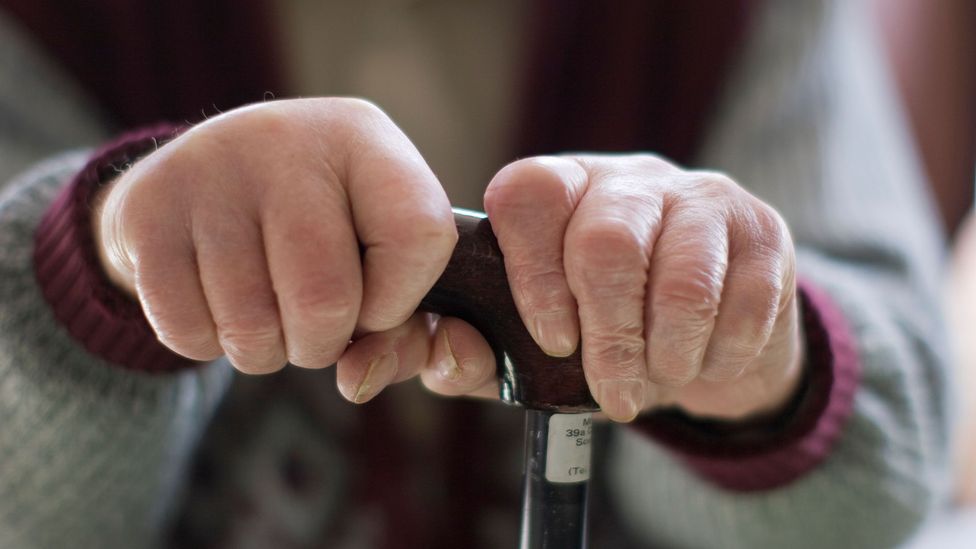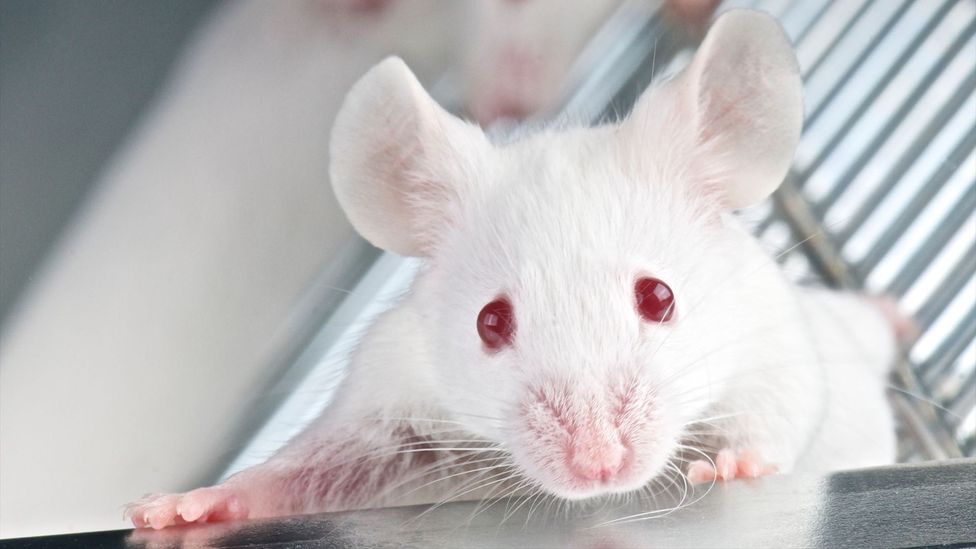If We Can Be Youth Again
Anti-ageing: Is it possible, and would we want it?

Eternal youth has been a homo preoccupation for millennia. Simply what would happen if we could actually halt the ageing process?
I
In the 1850s, the average life expectancy in the US at birth was only forty years old. Now, the boilerplate American can look to live until at least 78. Contempo medical research has teased us with the promise of extending human life further. But, what are the implications of this new medicine and what consequences would information technology have upon society?
Films, such as Logan's Run and Soylent Green, take painted grim visions of an overpopulated future, where desperate measures are taken to command these overcrowded worlds and their scarce resources. The need for strict population control is non pure fantasy – until recently, China had the One-Kid Policy, due to their booming population in the 1970s.
One might call back that a longer-living society would atomic number 82 to an increment in population, but the reality is quite different. Population growth is more determined by nascence rates than mortality rates. "In the very short term, falls in bloodshed exercise create population growth," observes Jane Falkingham, professor and managing director of the Center of Population Change at the University of Southampton. "In the longer period, it is fertility that is the engine rather than mortality."
- Ageing: the girls who never grow old
- The amazing fertility of the older heed
- The secret to a long and healthy life? Consume less
Recent clinical trials in mice accept shown diabetic animals given the drug metformin, first introduced in 1957, are living longer than non-diabetics, who did not take the drug. And information technology's been suggested that metformin could protect against basic ageing itself, and not just type two diabetes.
Withal, in that location are some possible pharmaceutical treatments that may not only protect against ageing, but actually contrary the effects of ageing itself.

Despite massive advances in wellness science, there is nonetheless a limit to how long the human being body can keep (Credit: Alamy)
The almost vampiric practice of elderly people beingness given blood transfusions from young donors has been discovered to accept some medical credibility. This fascination with blood'southward potentially life-giving properties was kickoff pursued by the German language doctor Andreas Libavius in 1615, where he considered connecting the arteries of an older man to that of a immature homo.
Libavius was confident information technology would succeed, and results from experiments in 2005 showed the thought had promise. Sometime mice became healthier with immature blood, whilst the young mice, who were infused with claret from elderly mice, did much worse. However, the risks associated with blood transfusions, such equally lung injury and infections, should not be overlooked.
Notwithstanding, there are treatments beingness developed that are not equally controversial and are repeatedly being proven equally effective in laboratory tests.
Mice that have their senescent cells – those that can no longer divide to create new cells – removed through the injection of Foxo4-DRI live longer. This compound essentially interferes with the normal procedure that would tell the cell to end dividing. These mice are at present 30 months onetime, which is approximately the equivalent of 100 homo years, and remain active, proving the effect is non temporary. "If yous target so-called bad senescent cells, which are unwanted as they accept become sometime and irreparably damaged, so you tin can extend and, to a degree, even restore health," explains Peter de Keizer of the Department of Molecular Genetics at Erasmus University Medical Centre. "By targeting these cells, ageing could not but be delayed, but also, to a degree at least, reversed."
Meanwhile, Calico, a subdivision of Google'due south parent company Alphabet, intends to harness avant-garde technologies in guild to sympathize the biology that controls lifespan and to use that noesis to devise interventions that volition enable people to lead longer and healthier lives.
So what are the implications if these techniques succeed in radically extending life? One possible issue around people living longer is that it would add to the effects of over-population, an increasing concern in the 21st Century.
In 2015, the number of children born to mothers in England and Wales was, on average, approximately 1.8 children. As society has become more educated and health has improved, the biological imperative for families to have lots of children to compensate for those who did not survive has get redundant. Further, the boilerplate age of women giving nascency has increased to 30.3 years and at that place is a growing number of women who have no wish to have children. "Many countries take gone down to, or near to, replacement levels," observes Sarah Harper, professor of gerontology at the University of Oxford and director of the Regal Institution of Great Britain.

Mice that have had senescent cells removed alive longer, healthier lives (Credit: Alamy)
There is besides the ethical puzzler that, unless age regression handling is made available to all, there is a danger of a two-tier social club beingness established, based upon who has access to the handling. We already live in a earth of massive social inequalities. "A child born in the slums of Nairobi has quite different life chances to a kid born in Kensington [in London]," says Falkingham.
Should historic period-extension treatment be equally distributed, then information technology would also face us with the consequences of a growing elderly population.
The oldest living person ever recorded was Jeanne Calment from France, who lived for 122 years (1875 to 1997). Since health care has continually improved since that time, it is surprising that this tape has not nonetheless been surpassed. However, it seems nosotros are genetically predisposed to die once we reach to certain age. "There was a paper that came out in 2016 that argued we might not be able to alive longer than 120 years," says de Keizer.
Others recall differently. Aubrey De Gray, professor at the SENS Foundation, believes the human being lifespan could soon extend dramatically to 1,000. Still, as Falkingham observes, "Non very many people agree with him."
Many elderly people struggle with conditions like cancer, heart disease, dementia and others. Much of the electric current medical inquiry is not almost living longer, but rather living healthier for longer, and delaying infirmity. "It is far ameliorate to put all our resources into having anybody take long and healthy life spans," says Harper.
Rejuvenation treatments may address the physical aspects of ageing, however they do not address the mental and neurological elements, such as Alzheimer'south and dementia. That being said, the number of reported cases of dementia is reducing. "1 theory is that just as we keep our bodies active our bodies tend to decline slower, and so there is an argument that as we keep our mental activities higher peradventure nosotros ward off dementia," says Harper.

Blood transfusions from immature donors can positively affect the health of older patients (Credit: Alamy)
Another aspect to us living longer and healthier lives is that our chronological historic period becomes increasingly meaningless when defining our lives. At that place are now forty-year-old women who are giving birth for the beginning time, likewise as other 40-year-old women who are condign grandmothers. Despite their shared historic period, their lives have petty in common.
In spite of us living longer, our 20s and 30s remain demographically dense, in that nosotros are still having children and starting careers during those decades. "Although we are extending life expectancy, we are not changing our biological time," says Falkingham. "The period in which women requite nascency is still in our 20s and 30s."
Historic period regression treatments are besides expensive. Fifty-fifty if Foxo4-DRI handling was cleared for utilize in humans, it costs approximately a few thousand euros for 10mg. And claret transfusions? Well, this supply is very express. Merely 4% of the UK population are blood donors, which is just one% over what medical and enquiry industries demand. Of these four%, not all volition be happy altruistic blood for age regression.
This scarcity of supply also raises the macabre possibility of a black market where young people are forced or coerced into providing their blood, as well every bit the dangers of unlicensed dealers selling fake plasma, or that which is unfit for infusion. If this seems overly dramatic, then all we demand to consider is how the health industry has become a profitable sector for organised crime. Europol stated, in their recent Serious and Organised Criminal offence Threat Assessment: "The distribution of counterfeit pharmaceutical products online is peculiarly dangerous." One recent performance resulted in the seizure of potentially dangerous medicines worth £45m ($58.5m).

Children born in Kenyan slums have a very different life expectancy to those born in the rich cities of the West (Credit: Alamy)
We would need incredible advances in our understanding of homo science to fully prevent man ageing, and to fifty-fifty predictably delay it seems a alpine order. Further, the ethical, cultural and sociological issues of eradicating ageing would need to be robustly discussed.
"Part of being human is that we have a finite life and that we pace our lives," concludes Harper. "Information technology is far improve to put all our resources into having everyone living long and salubrious lifespans, rather than having a few people to live into the far future."
--
Join 800,000+ Futurity fans past liking us on Facebook , or follow u.s.a. on Twitter .
If you liked this story, sign upward for the weekly bbc.com features newsletter , called "If Y'all Simply Read half dozen Things This Week". A handpicked pick of stories from BBC Future, World, Culture, Capital, and Travel, delivered to your inbox every Fri.
Source: https://www.bbc.com/future/article/20170928-anti-ageing-is-it-possible-and-would-we-want-it
0 Response to "If We Can Be Youth Again"
Post a Comment